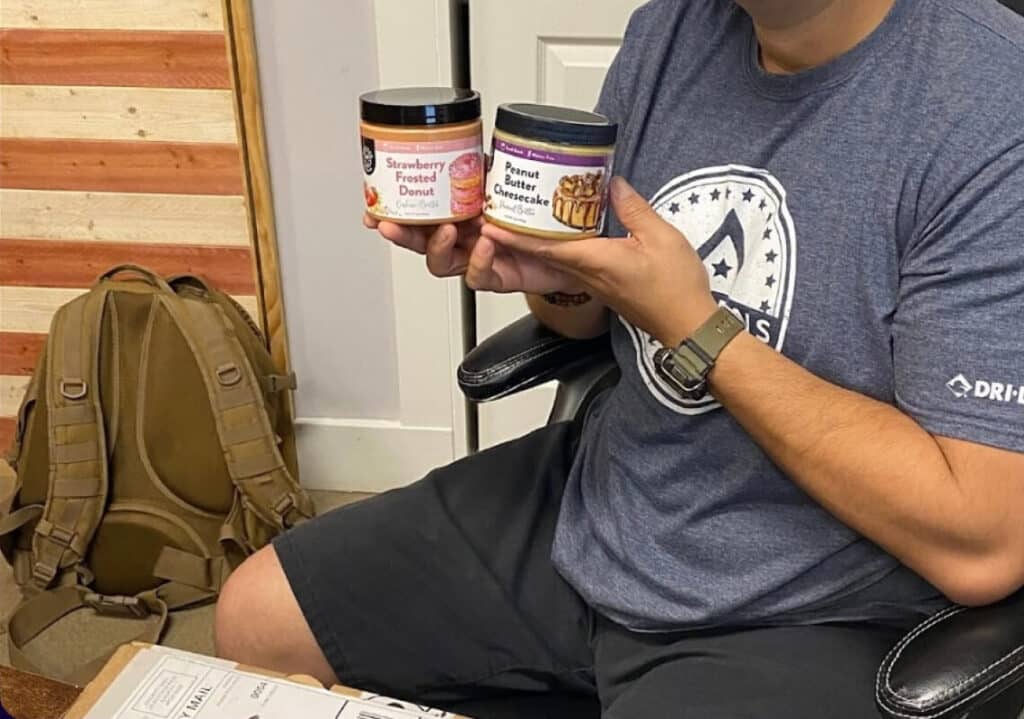Five Ways eCommerce Brands Can Leverage Affiliate Marketing

If you’re not leveraging affiliate marketing to increase sales and boost brand awareness, you’re missing out on sales and new customers. This is particularly true for eCommerce operations without brick-and-mortar locations to attract foot traffic.
Did you know that more than 80% of brands use affiliate marketing to capture their customers’ attention, engage with them, and generate more sales?
Keep reading to learn how you can leverage affiliate marketing to drive brand awareness today.
What Is Affiliate Marketing?
Affiliate marketing is a process in which an affiliate earns a commission for marketing a company’s products. The affiliate simply finds a product they enjoy and then shares that product with their network of friends, family members, and social media followers. As the affiliate’s network purchases the product, they earn a commission of the profit. Sales are tracked via affiliate links from one website to the next.
Once an affiliate reaches a minimum payment threshold, a brand will often send payment via PayPal, bank transfer, or check. It’s a straightforward way for the affiliate to earn some extra cash while the brand receives awareness and new customers.
For affiliates to be paid, they must make ‘qualified sales.’ This usually means the customers they brought in:
- Clicked on an affiliate link
- Put the product in their shopping cart after following the link
- Completed the purchase and receives the goods
- Does not return the product
Benefits of Affiliate Marketing
The benefits of affiliate marketing stretch beyond driving brand growth, increasing brand awareness, and improving sales. They include:
- Low start-up and maintenance costs: The best part about affiliate marketing programs is you don’t need a ton of capital or a huge marketing team to manage them. Instead, you depend on affiliates to create marketing content. After you find and vet affiliates, there’s little effort required to market your products. What’s more, since affiliate marketing is commission-based, you only pay your affiliates for the sales they bring in.
- Targeted traffic: Since you handpick your affiliates, you can ensure the traffic they drive to your site is from people who will find your product or service useful.
- Flexibility: You can easily scale your affiliate program or make it smaller with little to no cost.
- High return on investment: Affiliate marketing programs have a much higher ROI than most other marketing strategies. This is largely because your target audience hears about your brand from people who are already in their sphere of influence. Affiliate marketing channels your marketing efforts through affiliates’ direct access to their highly targeted audience.
5 Ways to Leverage Affiliate Marketing
So, how can you get started leveraging affiliate marketing today? Let’s find out.
#1. Brand Ambassador Programs
All brand ambassador programs are different. But, some are aligned with affiliate marketing strategies, particularly those brand ambassadors who get a percentage of each sale they make. What is a brand ambassador program? Brand ambassadors represent and advertise a certain company and work to integrate the company’s products into their community.
For example, Red Bull’s brand ambassadors are college students who work to make Red Bull products part of their campus lifestyle. Brand ambassador programs drive brand awareness, create authentic connections between the brand and consumer and increase brand trust. Brand ambassadors are experts on the brand’s product offerings, mission, and core values and are able to talk in-depth about the brand without a script.
If you don’t have a brand ambassador program, or you’re feeling overwhelmed trying to manage yours, BrandChamp is here for you. Request a demo or check out our free resources, including eBooks, case studies, and webinars to learn more!
#2. Harness the Power of Micro-Influencers
From the Kardashians to the D’Amelios, we all know about big-time influencers who rule social media — and charge millions of dollars for one post! But, there’s a hidden power that lies within micro-influencers. These influencers have a smaller, more powerful following. Typically, micro-influencers have between 10K and 100K followers, allowing them to engage a lot more with their followers than big-time influencers with millions of followers. Although micro-influencers won’t get as many eyes on your products as major influencers, the eyes they do get are more likely to click through the links and make purchases. In fact, studies have found that the more followers an influencer has, the less engagement they get; and influencers with a mere 1,000 followers had up to 85% engagement!
The power of the micro-influencer lies in their authentic relationships with their followers. These influencers can effectively get their audiences to trust the brands they promote and convince them to give their products or services a try.
#3. Generate User Content
User-generated content is another secret weapon of affiliate marketing, especially when you consider the fact that 92% of consumers look at people they know for referrals above any other sources. The truth is that when people love your products, they want to share them with everyone else they know — in real life and on social media!
Get started with user-generated content by informing customers about your affiliate marketing program. Let them know that they can make some extra cash by getting their friends and followers to try your products. User-generated product photos, videos, and reviews are all ways to grow your eCommerce business organically. Of course, you also have to capitalize on this user-generated content and post it on your company website and social media platforms for ultimate exposure and to make the most of the marketing power. Content generated by customers is more authentic, cost-effective, and maximizes your return on investment (which is often $0 with user-generated content!).
#4. Blogging
Blogging is another effective affiliate marketing method for brands — whether you start your own blog or find established bloggers who will place your affiliate links and products throughout their blog. Starting your own blog establishes expertise and positions you as a thought leader in your industry.
This type of affiliate marketing works best with niche businesses. For example, The Points Guy is a go-to source for travel hacks and deals. Sprinkled throughout TPG blogs are links to book said deals, sign up for credit cards to get points, and so forth. These affiliate links help travelers looking to save some money and provide companies with extra traffic, sales, and new customers.
Get started by adding links to your blog posts, banners, video clips, and pop-up ads. Use social media and email to share your links. Most importantly, focus on sharing affiliate links that are the most useful and that provide true value to your customers. Don’t only go for the sale; provide value first and foremost.
#5. Social Media
You can use social media to leverage just about any marketing strategy, including affiliate marketing. Sharing affiliate links on Facebook, Twitter, Instagram, TikTok, etc., is ideal for affiliates with large followings. Ways of sharing affiliate links on social media include:
- Facebook ads
- Personal pages
- Groups
- Promotional posts
- YouTube videos
Of course, it’s important to find the platforms that work best for you. Focus on where your target audience is, rather than casting a wide net on every social network. Research and find out where your target audience spends the most time, whether it’s LinkedIn, YouTube, Facebook, TikTok, Reddit, Pinterest, etc., and then develop your affiliate marketing strategy. Some of these sites have their own affiliate marketing programs and protocols set up, so make sure you are in compliance with all regulations.
In Closing
Affiliate marketing is a powerful marketing strategy that all brands should use to harness the power of word-of-mouth and influencers. Affiliate marketing offers many channels, so you can choose the one that resonates the most with your target audience. Whatever affiliate marketing method you decide to go with, make sure the products your affiliates are sharing are relevant content that resonates with your target audience.
How BrandChamp Can Help
To take your eCommerce brand’s affiliate marketing to the next level, get in touch with BrandChamp today! Our brand ambassador management software is the leading solution for ambassador marketing. We help brands build thriving ambassador communities that increase sales, brand awareness, and engagement on social media. Reach out for a free demo.





